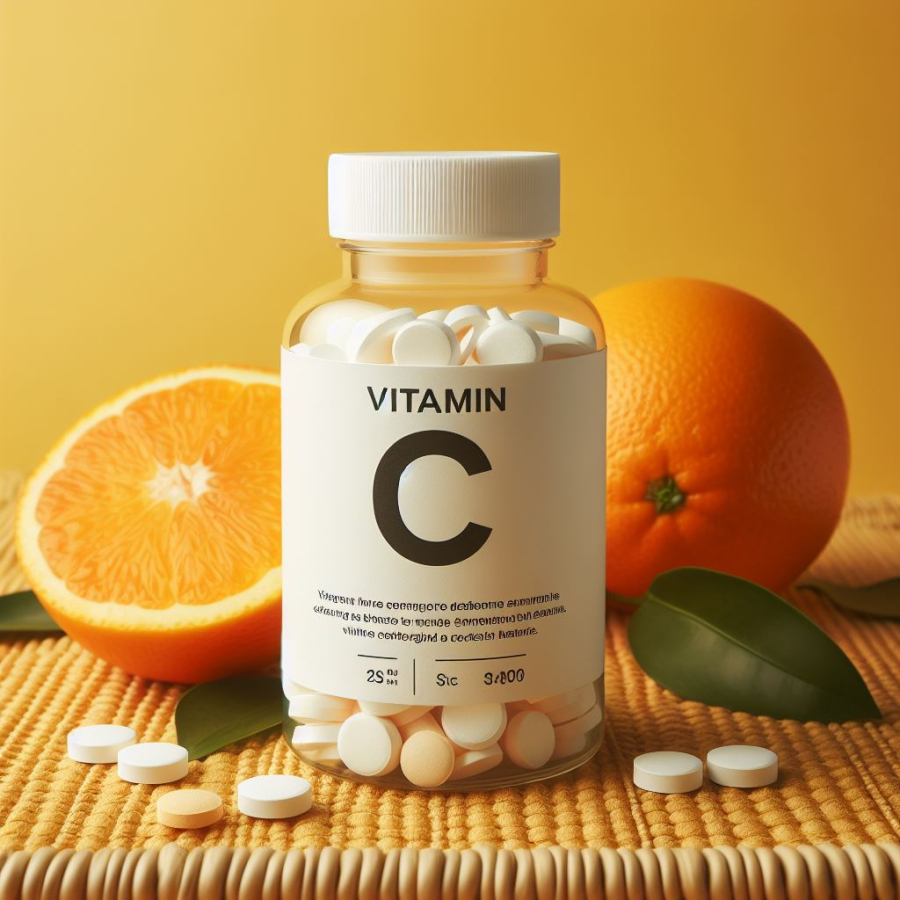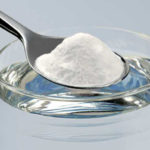Vitamin C is an essential nutrient that helps maintain our overall health. Additionally, many women consider it a valuable secret in the beauty realm. Whether ingested or applied topically, vitamin C is renowned for its skin-brightening and anti-aging properties, giving women a radiant and smooth complexion.
Hence, it is common to see individuals regularly consuming vitamin C supplements, expecting to harness its antioxidant properties to enhance their skin complexion. However, this perspective is solely based on public belief. What about the experts? Is there truth to the notion that consistent vitamin C consumption effectively lightens the skin as many believe?

A significant number of individuals regularly take vitamin C supplements.
Can Vitamin C Supplements Lead to Fairer Skin?
Given vitamin C’s antioxidant properties, beauty enthusiasts believe that consuming large amounts can enhance skin lightening effects, desiring quick results. In contrast, others doubt this ability, arguing that its impact is insignificant. So, what is the truth behind this narrative?
On this matter, Dr. Li Heng, head of the Dermatology Department at Hubei Province Hospital of Traditional Chinese Medicine, pointed out that vitamin C, also known as ascorbic acid, has high acidity and is a potent reducing agent, as well as an effective antioxidant.
Melanin is the pigment responsible for skin color, and its uneven distribution is the primary cause of uneven skin tone, age spots, and freckles. Vitamin C can inhibit the enzyme tyrosinase, reducing melanin production and preventing its uneven accumulation, resulting in brighter skin.
Vitamin C is also known for its antioxidant properties, stimulating collagen production and skin rejuvenation, thereby slowing down skin aging and potentially brightening the skin indirectly.
However, experts suggest that these effects are primarily observed in laboratory settings and lack sufficient scientific evidence to confirm that oral vitamin C consumption can lead to skin lightening in humans.
Dr. Li Heng emphasized, “While vitamin C is essential for collagen synthesis, a crucial component of the skin, supplementing with vitamin C may not deliver the expected skin lightening results.”
Dr. Ngo Duc Hung from Bach Mai Hospital warned that vitamin C is water-soluble and can be rapidly excreted by the body. Therefore, taking high doses of vitamin C is not only unbeneficial in treating any medical condition, including skin lightening, but it can also be harmful. Particularly, administering vitamin C through intravenous injection may pose the risk of anaphylactic shock.
Experts also assert that there is no evidence suggesting that consuming large amounts of vitamin C will significantly improve skin tone or enhance skin appearance. In fact, excessive vitamin C intake over an extended period can be detrimental to one’s health.

Experts affirm that there is no solid proof that increased vitamin C intake will considerably enhance skin tone or appearance.
Can Excessive Vitamin C Intake Damage the Kidneys?
Vitamin C, due to its acidic nature, can be harmful to the body if not used appropriately. The acid in vitamin C can increase the acidity of urine, elevating the risk of calcium oxalate stone formation in the urinary tract and kidneys. Furthermore, consuming large amounts of vitamin C can interfere with the action of anticoagulant medications like heparin and dicoumarol, leading to blood clots. This is especially dangerous for individuals with cardiovascular and cerebrovascular diseases, increasing the likelihood of cerebral infarction or stroke.
Additionally, combining vitamin C intake with vitamin B12-rich foods can decrease vitamin B12 levels in the body. This can result in the destruction of vitamin B12, causing anemia due to this deficiency.
Dr. Jiang Shoushan, a kidney specialist and director of the Quanyuan Clinic in Taiwan, shared the case of a female patient with stage 3 chronic kidney disease, which was not too severe. Unfortunately, after two years of daily vitamin C intake of 200mg, her condition worsened, leading to acute kidney failure.
During the consultation, the woman revealed that she often drank water mixed with vitamin C tablets due to their pleasant taste and her desire for fairer skin. However, this habit resulted in kidney damage. Subsequent tests indicated high levels of oxalic acid in her body, providing concrete evidence that excessive vitamin C intake can induce kidney problems due to oxalic acid.

Nutritionists recommend obtaining vitamin C through natural food sources.
Should We Take Daily Vitamin C Supplements for Skin Benefits?
Nutritionists recommend obtaining vitamin C through natural food sources. Abundant sources of vitamin C can be found in various fruits and vegetables, such as guava, citrus fruits, broccoli, kiwi, and bell peppers.
It is essential to understand the required vitamin C dosage for one’s body, as this need varies depending on factors such as age, gender, and overall health status. Specifically, men aged 19 and older are advised to consume 90 mg of vitamin C daily, while women require 75 mg. Pregnant women should increase their intake to 85 mg, and when breastfeeding, they need 120 mg of vitamin C daily. Smokers or those frequently exposed to secondhand smoke should add an extra 35 mg of vitamin C to their daily intake.
How to Effectively Treat Fishbone Issues at Home
Everyone loves feasting on the deliciousness of fish during the holidays. But, unfortunately, choking on fish bones is an unavoidable issue that may lead to devastating consequences if left unattended for a prolonged period. Let’s see how Dien May Xanh can help us out when fish bones get stuck in our throat.





































